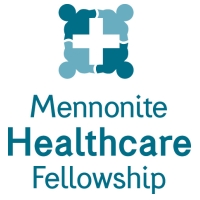Mennonite Health Journal
Articles on the intersection of faith and health
Moral Dilemmas and Choices
Paul D. Leichty
from Mennonite Health Journal, Vol. 15, No. 3 – August 2013
As I’ve reflected on the theme and presentations of the 2013 MHF Annual Gathering, I have recognized anew that resolving moral dilemmas involves choices. At a very basic personal level, I hope that my choices reflect my Christian values. Jesus summarized those values as loving God and loving my neighbor as myself.
Yet, in today’s global village where my actions can have a ripple effect on many people who I don’t even know and will never meet or even see, how does one love the neighbor as oneself? Sometimes, even the choices that I make may benefit one neighbor but not another. Sometimes the short-term help I give to a few persons right in front of me has unforeseen but negative long-term consequences for many people, both seen and unseen. Were all of those antibiotics prescribed really necessary now that we know the increasing resistance being developed to those antibiotics? Have increased mammograms really prevented deaths from breast cancer in ways that other techniques could not? Is the skyrocketing use of Ritalin and other mind-altering drugs really giving us happier and more well-adjusted children?
Perhaps one place to begin resolving the moral dilemmas in our lives and our society is to ask, “Who actually benefits by our choices?” Here are some possibilities:
Myself. Jesus did say to love my neighbor as myself, so I could logically conclude that a choice that benefits me personally should benefit others as well. While that does appear to be the reasoning behind the growing libertarian movement in the U.S. (most notably, the “Tea Party,”) most Christians would find that reasoning shallow and hollow.
The group to which I belong. Sometimes we extend ourselves by citing the benefits of our choices to a group—usually a favorite group, a group to which we have the most loyalty. That group may be as small as my family but is usually larger. It may be a professional group, a national group, a political party, or even a church group. It may be a group to which I belong because of a particular challenge that I face personally or in my family, such as cancer or AIDS, or intellectual disabilities. In a capitalist political system, groups form lobbies to advocate for public choices that benefit their group. However, the increasing problem is that choices that benefit one group work are detrimental to another group.
The persons who most deserve it. In deciding for one group over against another, we sometimes make choices according to some system of merit. In this way of thinking, there are those who have made poor decisions and need to live (or die) with the consequences, and there are others who suffer through no fault of their own. So choices are made in favor of the latter group. The problem comes about in determining the criteria for who deserves the help of others. Do people who smoke deserve treatment for lung cancer? Do people who don’t eat healthy foods or don’t exercise enough deserve treatment for high blood pressure and heart disease? Do both the mothers who drink alcohol or do drugs during their pregnancy as well as their babies deserve pre-natal care and neo-natal care?
The most people. Sometimes, we lay aside our moral criteria for who deserves our help and simply say, “I want my choices to benefit the most people, hopefully, the vast majority.” While this may be a helpful criteria for resolving many moral dilemmas, it may also have the effect of catering to the group with the most power, the loudest voice, or those who claim most forcefully to represent the will of “the people.” Being in the majority doesn’t automatically make us morally pure. Sometimes the majority who benefit by our choices aren’t always those who need more benefits.
Those who are most needy. Many Christians would note Jesus’ response to the question, “Who is my neighbor?” We usually call the story “The Good Samaritan.” It illustrates that the neighbor is the one that you become aware of who is in need. This reasoning would call on Christians to make choices that offer the greatest benefits to the most vulnerable in society (those who are poor, who are sick, who have disabilities, or who are weak). The Biblical story indicates that the moral and spiritual health of the people of God was dependent on how they treated the widow, the orphan, and the stranger—those who were most vulnerable in society. Jesus indicates in the parable of the sheep and the goats that nations themselves will be judged by their treatment of the hungry, thirsty, the sick, and those in prison.
While all of these criteria may have something to offer in helping us resolve moral dilemmas, the Biblical record, and indeed, the life of Jesus himself, weigh heavily on making decisions that offer most benefits to those with the most needs. When Jesus was questioned on his own choices in how he spent his time, he used healthcare imagery to make the point clear:
“Those who are well have no need of a physician, but those who are sick.” God comes to us most fully at our point of need. While that may not totally resolve all moral dilemmas, it gives a clear starting point to make choices each day.
About the author
 Paul D. Leichty, M.Div. was the first Executive Director of Mennonite Healthcare Fellowship (MHF), serving from Sept. 2011 through May 2020. Paul has served as a pastor, church musician, computer support person, disabilities advocate, and administrator/organizer of a number of church-related ministries. In addition to responsibilities at MHF, Paul is Executive Director of Congregational Accessibility Network and was formerly Director of User Services at Mennonite.net. He is a member of Agape Fellowship of the Mennonite Church in Williamsport, Pennsylvania where he lives with his wife, Twila Charles Leichty.
Paul D. Leichty, M.Div. was the first Executive Director of Mennonite Healthcare Fellowship (MHF), serving from Sept. 2011 through May 2020. Paul has served as a pastor, church musician, computer support person, disabilities advocate, and administrator/organizer of a number of church-related ministries. In addition to responsibilities at MHF, Paul is Executive Director of Congregational Accessibility Network and was formerly Director of User Services at Mennonite.net. He is a member of Agape Fellowship of the Mennonite Church in Williamsport, Pennsylvania where he lives with his wife, Twila Charles Leichty.

